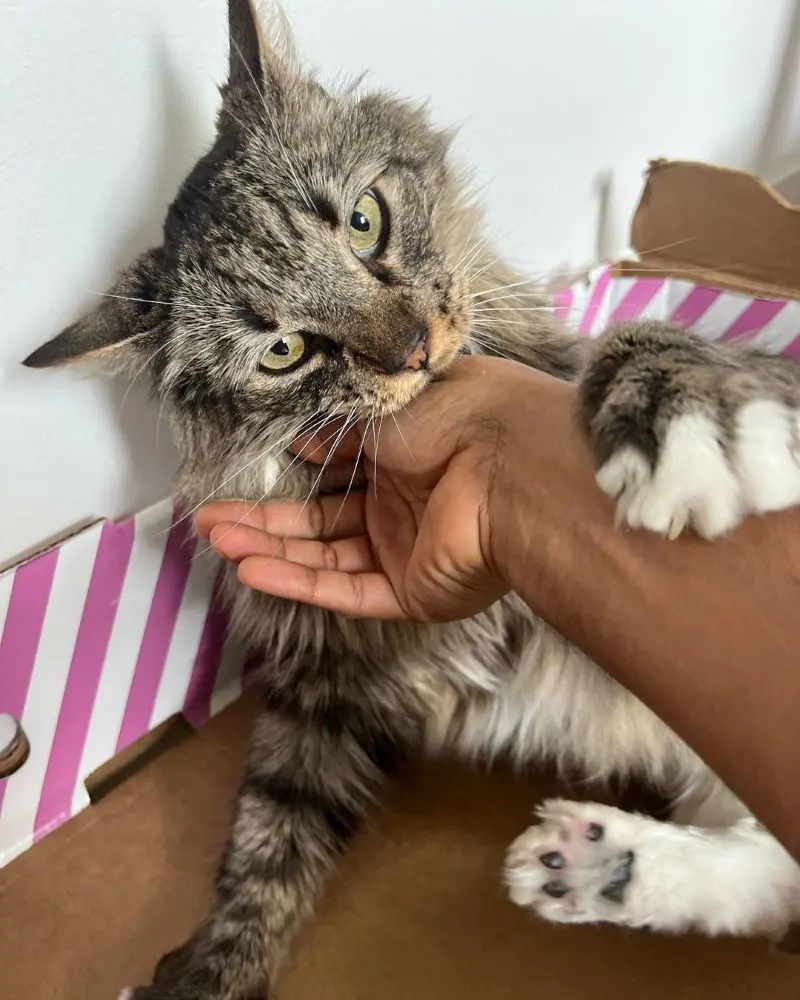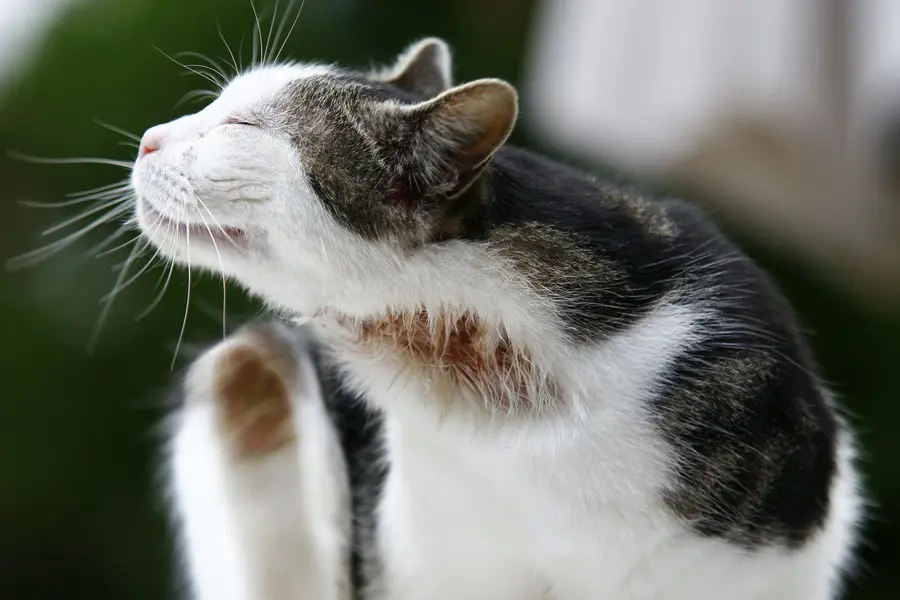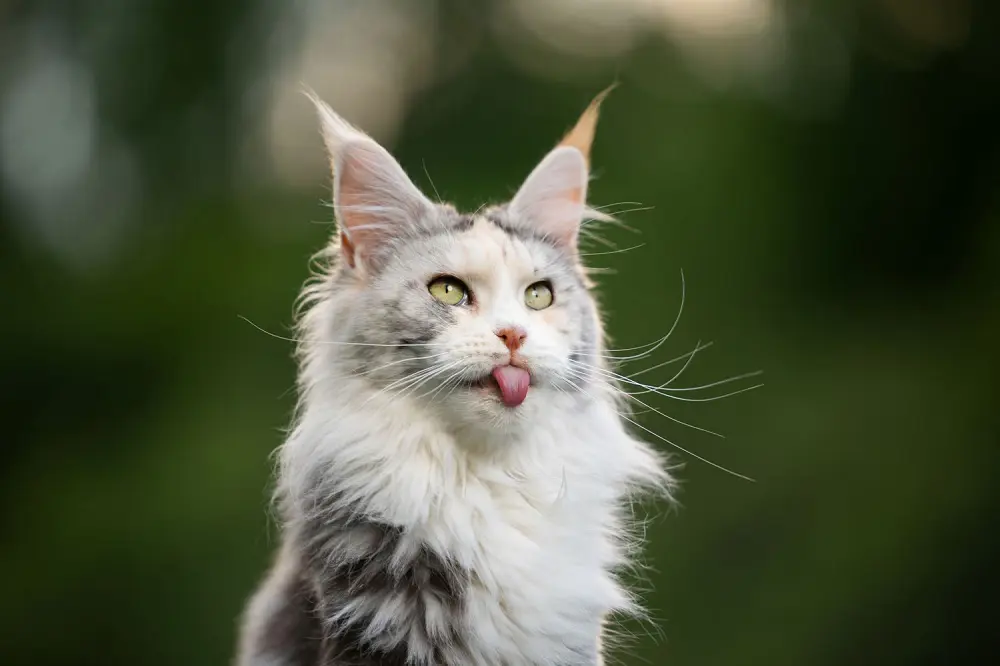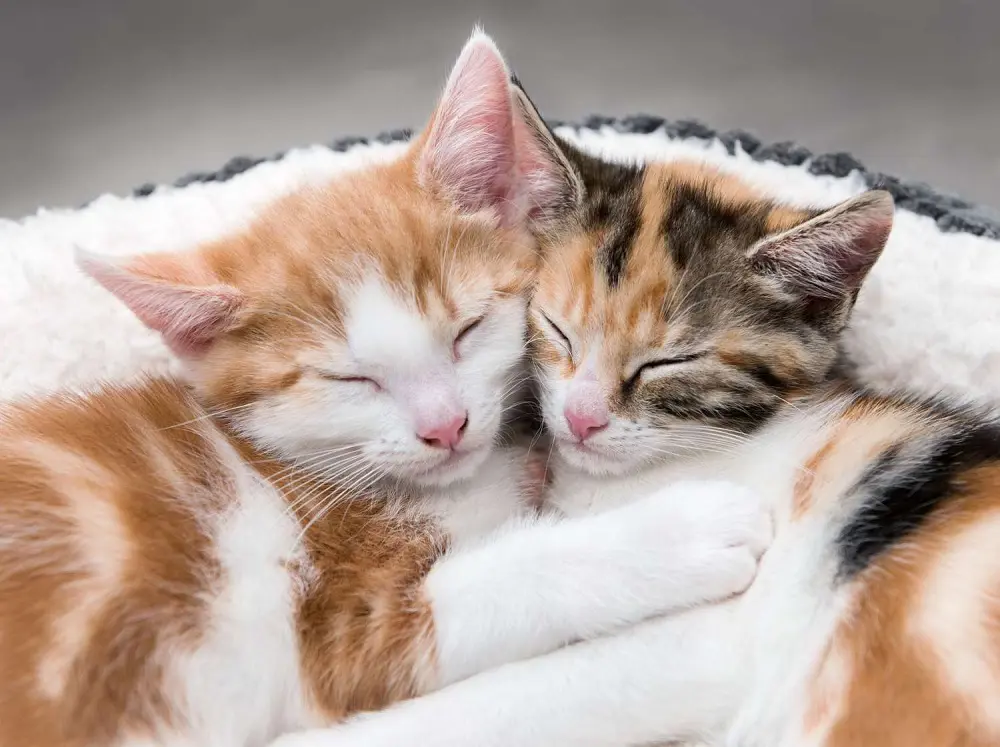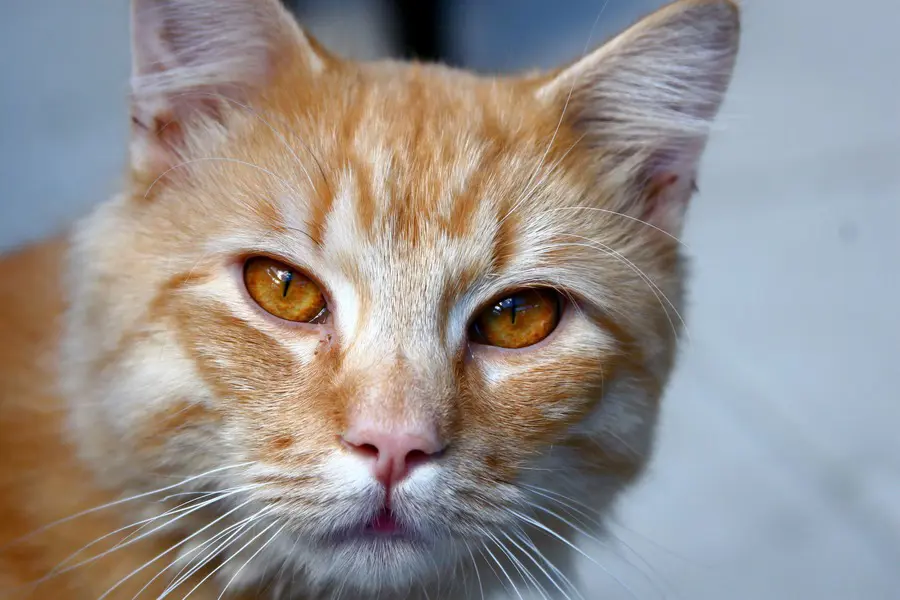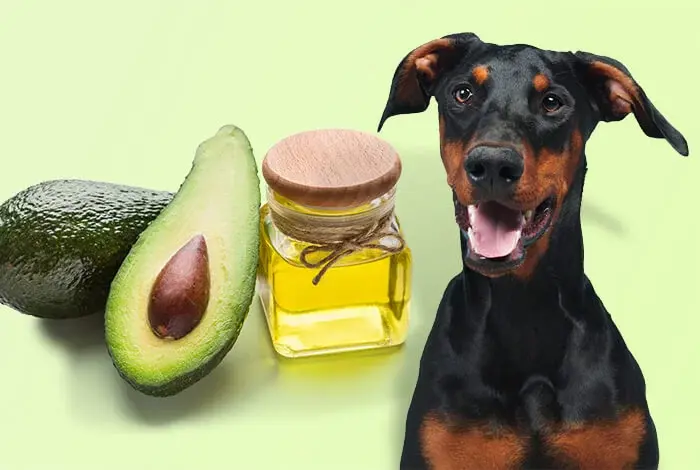Sphynx Cat Breed Profile Information
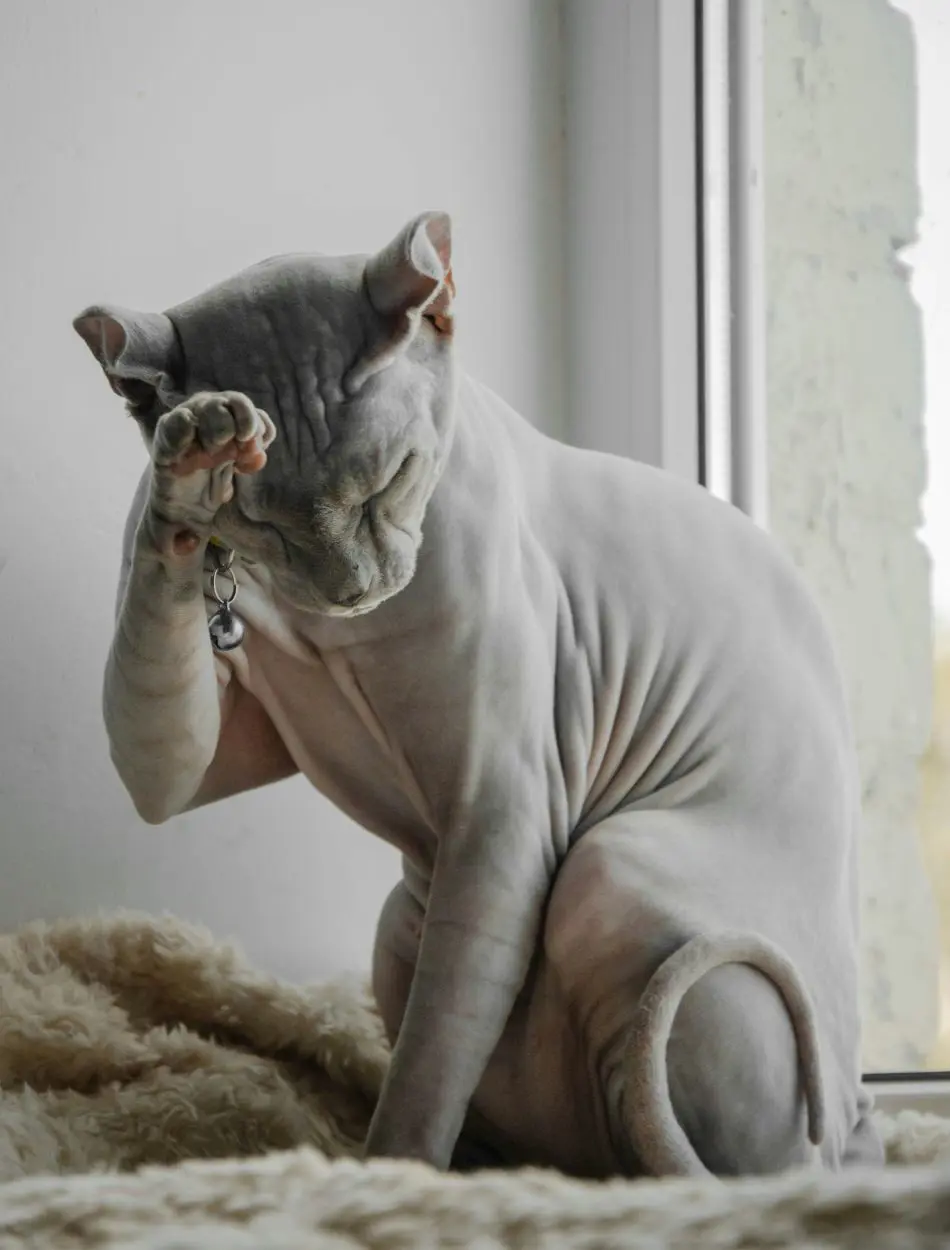
Sphynx cats are one of the most recognizable breeds due to their distinctive appearance, hairless bodies adorned with velvety skin that begs to be touched.
Often showcasing dog-like characteristics, this breed is more social and affectionate than most breeds. Their longing for human companionship has made them a desirable pet choice.
If you are looking to purchase or adopt a Sphynx, you should be aware of every aspect of the cat. This detailed article will help you guide you through the basics of the cat breed.
Overview
The Sphynx breed is best characterized by its lack of fur and almond-shaped eyes. Despite being hairless, the feline has a fine layer of peach-fuzz-like gown, giving its skin a soft, warm texture.
This breed typically displays prominent wrinkles, especially around the shoulders and head. The wrinkly skin, combined with bat-like ears, pronounced cheekbones, and almond-shaped eyes, gives the cat an exotic and somewhat alien appearance.
Additional distinct features of the Sphynx cat include a muscular body, a rounded abdomen, and a whip-like tail. These felines also boast diverse colors and patterns, similar to those found in furred breeds. Their skin can display solid colors like black, white, blue (gray), red, and cream. Likewise, they exhibit various patterns, including tabby (striped), tortoiseshell (mixed colors), calico (patches of different colors), and pointed (darker extremities).
Sphynx Cat Origin And History
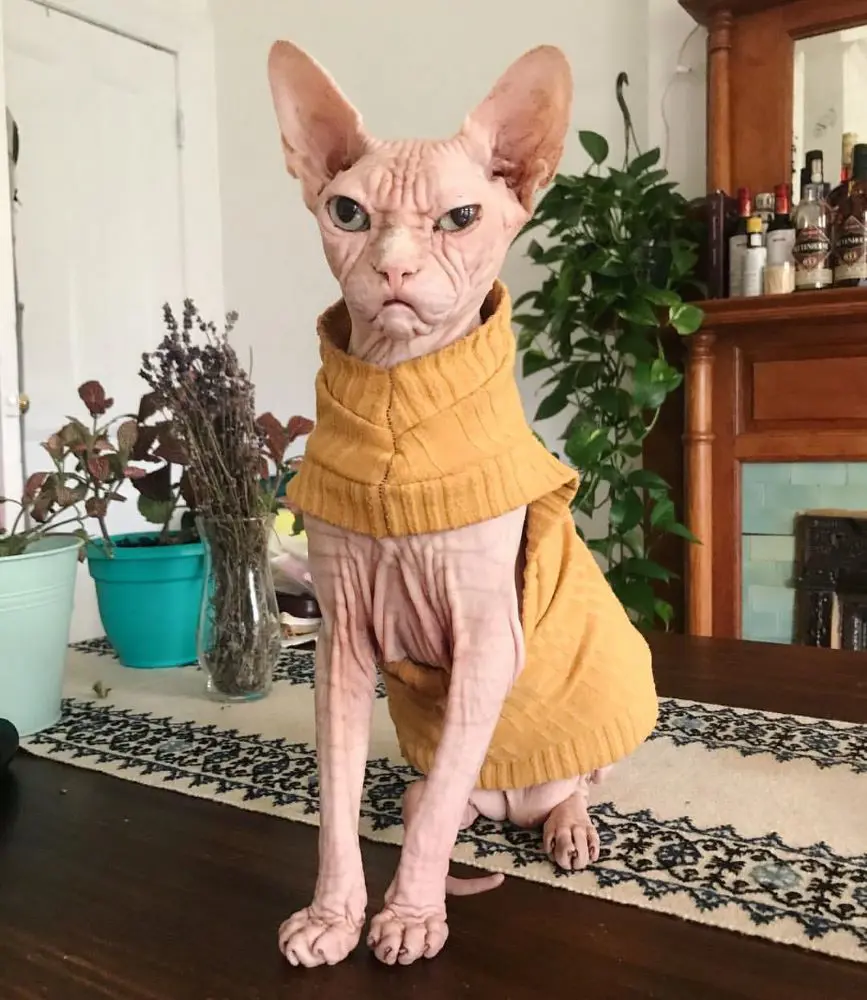
First recorded in 1966 in Toronto, Canada, the Sphynx cat was created due to a natural genetic mutation resulting in hairlessness. Initially bred for this unique trait, the Sphynx was intended to be a novel and hypoallergenic pet.
In the 1980s, the Canadian hairless cat gained popularity among the wealthy as a status symbol for those seeking exotic and rare pets. It soon captivated the attention of Western society, leading to its spread across the United States and Europe. By the 1990s, the Sphynx had become a popular household pet, particularly due to its unique appearance and hypoallergenic potential.
Culturally, the Sphynx cat has intrigued various societies, often symbolizing mystery and elegance. In ancient and modern contexts, its hairless form has been associated with themes of transformation and the unconventional.
Temperament And Personalities
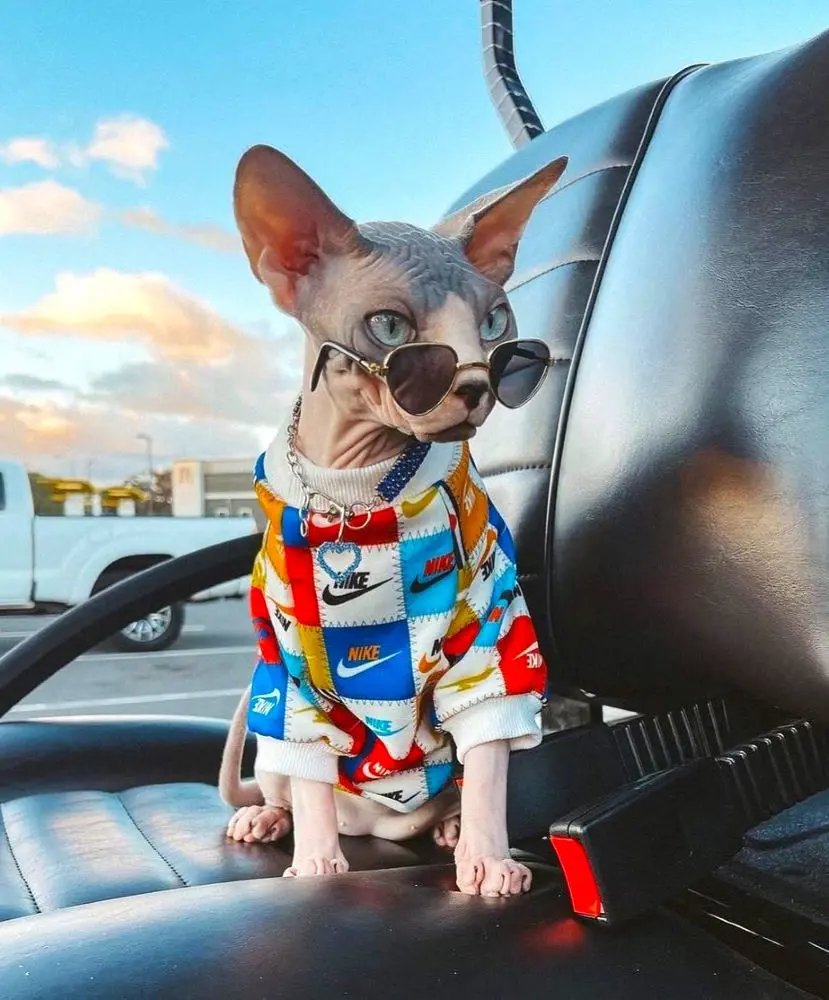
Often described as dog-like, Sphynx cats enjoy human companionship and can be quite vocal. Their friendly nature makes them great companions, especially for families with other pets and children.
The personality traits, explained below, accurately describe the personality of the cat sphynx cat:
Affectionate
These felines are known for their empathy, a dog-like characteristic that is rare in cats. They love to cuddle and will frequently seek out their owners for warmth and attention, often curling up in laps or snuggling under blankets.
Sphynx cats enjoy involving in common activities with their family; they even tend to follow their humans from room to room. These hairless creatures are highly interactive and enjoy being petted, touched, and held.
Sociable
Sphynx's need for constant companionship and interaction accurately displays its sociable personality. This breed is naturally curious and energetic, thriving on human attention and engagement.
Additionally, Sphynx cats enjoy mental stimulation, which they often get from social interactions. Their friendly and outgoing nature means they easily get along with other pets and children.
Energetic
Known for their playful antics, these cats are constantly on the move, exploring their environment with enthusiasm. They enjoy interactive toys, climbing, and jumping, often behaving like kittens well into adulthood.
Their high energy levels require regular playtime and mental stimulation, making them fond of games and activities that challenge their intelligence. This energy also contributes to their athletic build, as they are agile and strong.
Attention-Seeking
Sphynx cats thrive on human interaction and crave constant companionship, often following their owners around the house and engaging in whatever activity is happening. They will often vocalize to get attention and are known for their persistent yet endearing demands for affection.
Their need for attention means they enjoy being the center of focus, reveling in interactive play and close physical contact. This characteristic makes them highly interactive and engaging pets.
Intelligent
This breed exhibits problem-solving abilities and a keen curiosity about its surroundings. They are also known for their ability to adapt to new situations and learn routines quickly. Their intelligence is evident in their social interactions as well, as they can understand and respond to human emotions and cues.
Compatibility With Other Pets
Sphynx cats adapt well to living with other pets, including dogs and other cats. Their friendly and sociable nature helps them to integrate smoothly into multi-pet households. They often enjoy the company of other animals, engaging in playful interactions and forming bonds over time.
Their lack of fur can sometimes lead to initial curiosity or cautious reactions from other pets. But, Sphynx cats' affectionate demeanor and gentle approach usually help to establish positive relationships.
Diet And Nutrition
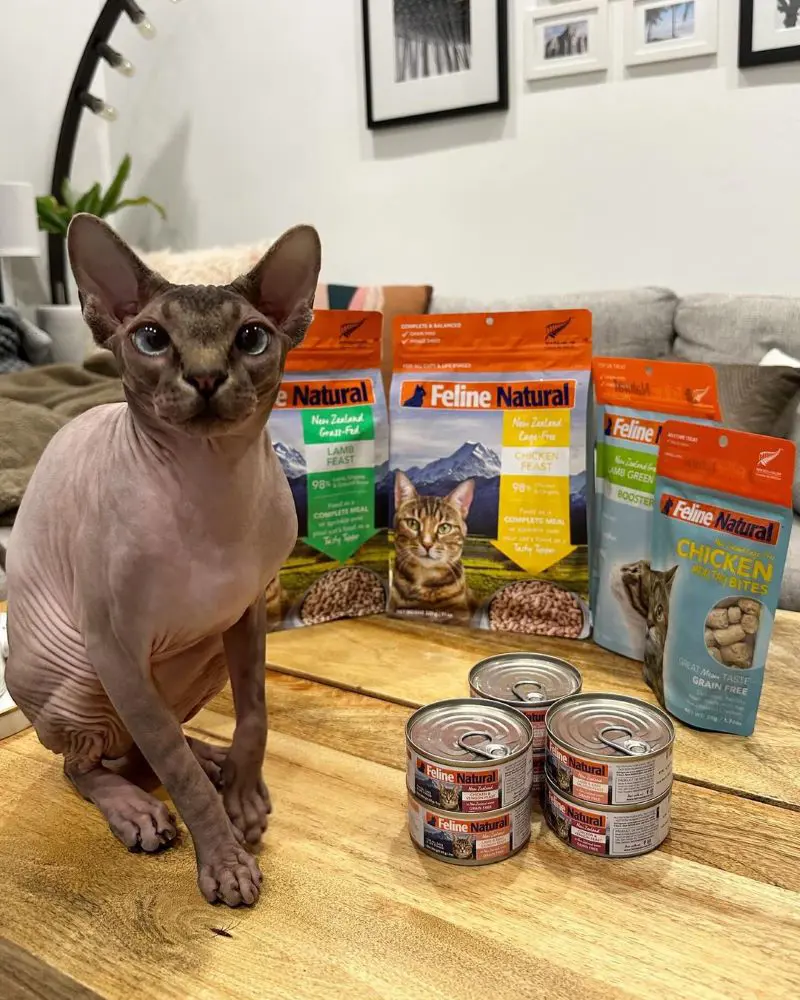
A standard diet for an adult Sphynx cat consists of balanced mix of protein, fats, and carbohydrates. Protein sources, such as chicken, turkey, or fish, are important for muscle maintenance, while fats provide energy and support skin health.
Since Sphynx cats lack fur, their skin can be more sensitive. Adding essential fats like omega-3 and omega-6 fatty acids to their diet can contribute to healthy skin and a shiny coat.
Nutritional Requirement
Sphynx cat's balanced diet should contain the following key nutrients.
1. Protein [30-40%]:
- Essential for muscle maintenance, growth, and overall health.
- Sources: Chicken, turkey, fish, beef, and eggs.
2. Fats [15-20%]:
- Provides energy, supports skin health, and aids in nutrient absorption.
- Sources: Fish oil, chicken fat, and flaxseed.
3. Carbohydrates [2-5%]:
- Source of energy and aids in digestion.
- Sources: Brown rice, sweet potatoes, and peas.
4. Vitamins:
- Vitamin A: Supports vision, immune function, and skin health.
- Vitamin D: Helps in calcium absorption for bone health
- Vitamin E: Acts as an antioxidant, and supports skin health and immune function.
- Vitamin K: Essential for blood clotting.
- Sources: Fish, meat, liver, eggs, and leafy green vegetables.
5. Minerals
- Calcium and Phosphorus: Crucial for bone health and growth.
- Magnesium, Potassium, Sodium: Important for nerve and muscle function.
- Zinc, Iron, Copper, Manganese: Support overall cellular functions and enzyme activities.
- Sources: Dairy products, fish, and meat.
7. Fatty Acids
- Omega-3 and Omega-6 fatty acids boost skin health, reduce inflammation, and promote a healthy coat.
- Sources: Fish oil, flaxseed, and commercial cat food with added fatty acids.
8. Water
Sphynx cats require plenty of fresh water daily, normally about 3.5 to 4.5 ounces (100-130 ml) per 5 pounds (2.3 kg) of body weight. Their water should be fresh and clean, ideally at room temperature or slightly cool, as cats prefer cooler water.
It's also crucial to change their water at least once a day to ensure it remains clean and appealing. Providing multiple water sources or using a pet water fountain can encourage regular drinking.
Sphynx Cat Care
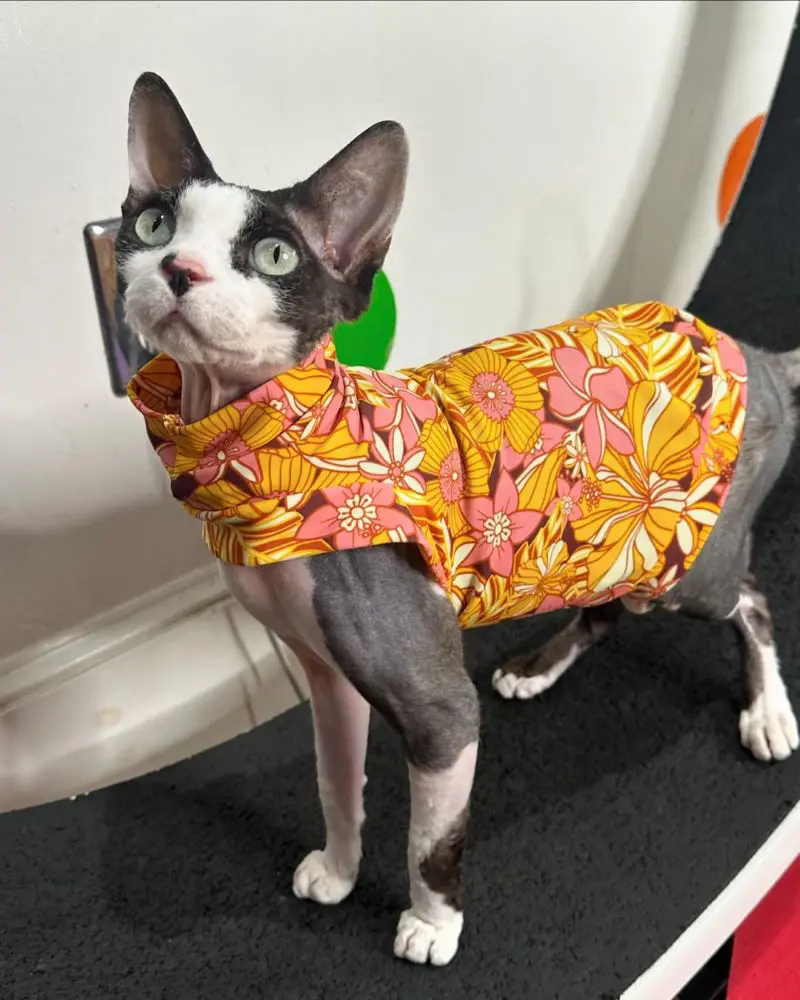
Despite their hairless appearance, Sphynx cats require regular care and human intervention. They need frequent baths to remove oil buildup on their skin along with regular grooming.
Their lack of fur also makes them sensitive to temperature changes, requiring a warm environment. Although not low-maintenance, their affectionate nature and unique appearance make them rewarding pets.
Grooming
Unlike furred breeds, Sphynx cats accumulate natural oils on their skin. Give them weekly baths to prevent oil buildup and potential skin issues.
Use a gentle, hypoallergenic cat shampoo and lukewarm water to bathe them, carefully washing all the skin folds and creases. After bathing, dry them thoroughly with a soft towel to prevent chilling.
Additionally, Sphynx cats need routine ear cleaning to remove wax buildup, which can be done using a damp cloth or pet-safe ear cleaner. Nail trimming is also necessary every couple of weeks to prevent overgrowth.
Exercise
Plant a daily exercise routine to keep your pet healthy and prevent obesity. Due to their high energy levels and playful nature, at least 20-30 minutes of active play each day is essential. Regular exercise helps keep their muscles toned, supports cardiovascular health, and provides mental stimulation.
Keep your kitty busy with interactive play sessions like feather wands, laser pointers, and balls. Climbing trees or cat towers provide opportunities for climbing and jumping, while puzzle toys and treat-dispensing games engage their intelligence.
Illnesses And Health Issues
Sphynx cats are generally as healthy as other breeds but are not inherently more resilient. Their hairlessness is due to a natural genetic mutation, not a deformity, and it represents a unique variation rather than an evolutionary step.
Despite their robust nature, Sphynx cats are prone to certain health issues. They are susceptible to skin problems like rashes and infections due to oil buildup, necessitating regular baths. Additionally, they can suffer from heart diseases such as hypertrophic cardiomyopathy and respiratory issues.
These are the primary health concerns associated with the breed:
1. Hypertrophic Cardiomyopathy (HCM)
HCM is a common heart disease in Sphynx cats, characterized by the thickening of the heart muscle, particularly the left ventricle. It can impair the heart's ability to pump blood efficiently.
Symptoms may include lethargy, rapid or labored breathing, and decreased appetite. However, some cats may show no symptoms until the disease is advanced.
Treatment: Medications like beta-blockers or ACE inhibitors improve heart function and reduce the risk of heart failure.
2. Skin Conditions
These cats are susceptible to various skin conditions due to their lack of fur. Oil buildup on their skin can lead to infections, rashes, and acne.
Without fur to absorb the oil, it can accumulate and create a breeding ground for bacteria. Symptoms of any unwanted skin condition in these felines include red or inflamed skin, pustules, and excessive grooming or scratching.
Treatment: Regular bathing with a gentle, hypoallergenic cat shampoo can help prevent oil buildup. In severe cases, a veterinarian may prescribe medicated shampoos or antibiotics to treat infections.
3. Respiratory Issues
Sphynx cats' sensitive skin has been linked to respiratory infections in this breed. These infections can be caused by bacteria, viruses, or fungi.
Look for signs of sneezing, coughing, nasal discharge, and labored breathing to detect respiratory problems in these cats.
Treatment: Maintain a clean and stress-free environment, while also keeping the cat's immune system strong through a balanced diet and regular vet check-ups.
4. Sunburn
Without fur to protect them, these Canadian cats are at a higher risk of sunburn. Sunburn occurs when the cat is exposed to direct sunlight for extended periods, eventually causing skin damage and even cancer.
Sunburn symptoms in these felines include red, inflamed skin, peeling, and sensitivity to touch.
Prevention: Keep the cats indoors or provide shaded areas if they go outside. Using pet-safe sunscreen on exposed skin can also help.
5. Periodontal Disease
This is a common dental issue in the breed, caused by the accumulation of plaque and tartar on their teeth. If left untreated, periodontal disease can lead to inflammation, infection, and damage to the structures supporting the teeth.
Look for symptoms like bad breath, red or swollen gums, difficulty eating, and tooth loss.
Prevention: Arrange regular dental check-ups, professional cleanings, and daily brushing of the cat’s teeth.
If periodontal disease develops, treatment may involve professional dental cleaning, antibiotics for infection, or extraction of affected teeth to stop spread of the disease.
Sphynx Kitties And Average Litter Size
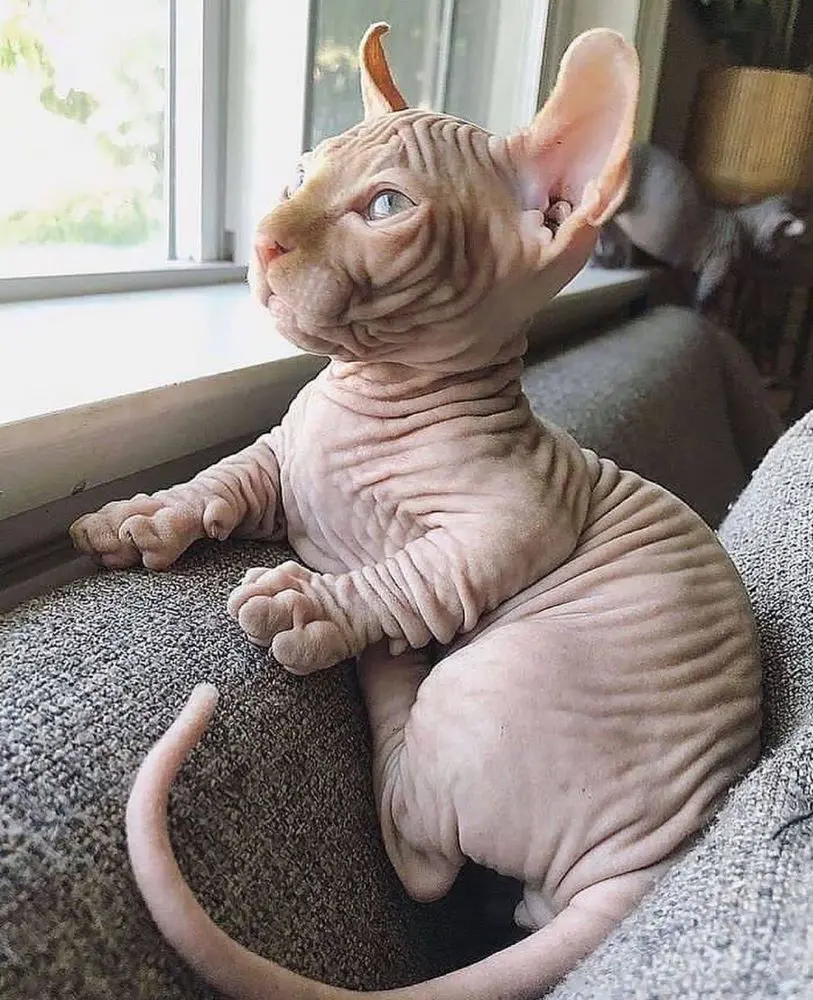
Female Sphynx cats go through a gestation period of approximately 63 to 65 days. During this time, the pregnant queen needs ample nutrition and care to support her developing kittens. Normally, a Sphynx cat gives birth to a litter of 4 to 6 kittens, each weighing around 80 to 120 grams at birth.
These tiny, hairless kittens are quite vulnerable initially but are nurtured closely by their mothers. With proper care, these cats have a high probability (around 85%) of reaching adulthood.
How Much Do Sphynx Kitties Cost?
In the US, a Sphynx kitten can cost anywhere between $1,500 and $4,500. These cats are a relatively rare and sought-after breed, increasing their value in the pet market.
Breeding these cats requires specialized knowledge, resources, and care. Breeders invest significantly in genetic testing, health screenings, and proper nutrition for the well-being of both the kittens and breeding adults. The unique grooming needs of Sphynx cats, including regular bathing and skin care due to their lack of fur, also contribute to the overall cost of owning and breeding them.
Top Lists


